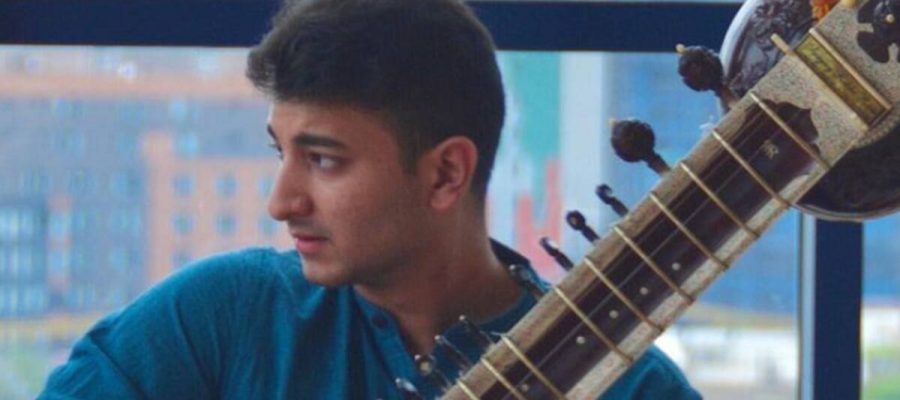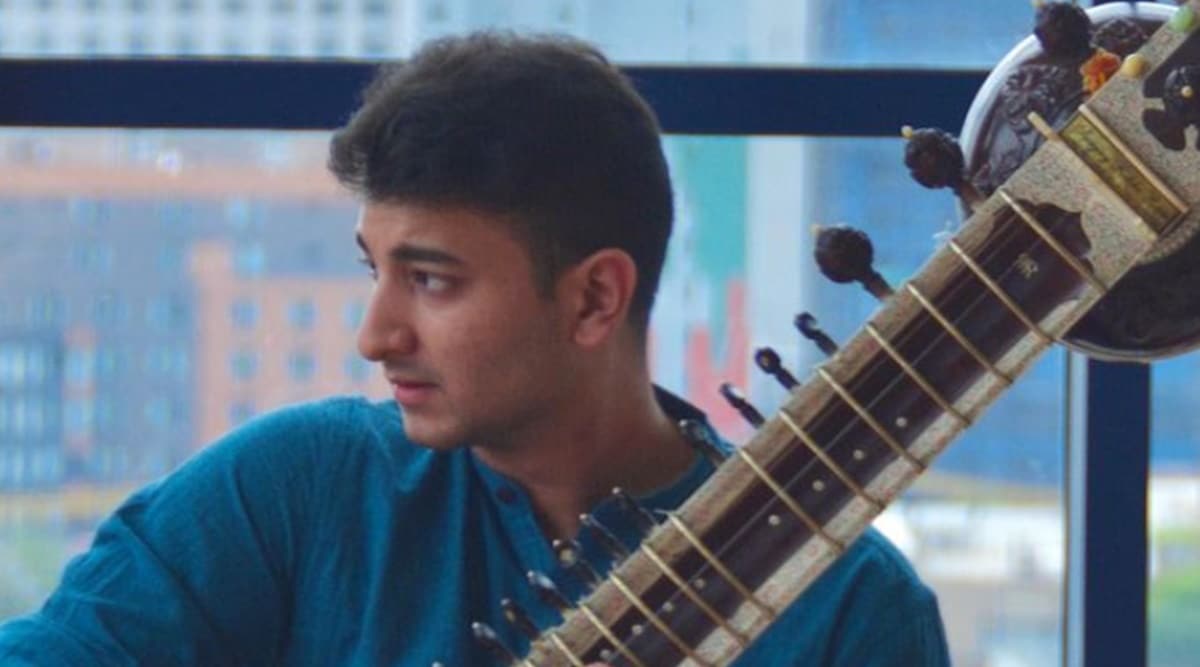On his connection with the sitar that "runs deep", Rishab said, "I have two lineages on my shoulders like one is my family lineage, and the other is the Ravi Shankar style of music and his gharana."
As someone who has been performing ever since they were 10, the pandemic and subsequent lockdowns caused anxiety to sitar player Rishab Rikhiram Sharma. “I was really struggling mentally as a performing artiste, because every week, I would have a concert. But during the pandemic, it felt like someone’s stealing that away from me and telling me to just sit at home, doing nothing. I mean, of course, we had time for practice, but performance is your life. And when someone snatches away something so dear to you, and something that you’ve been doing for all your life, it is really tough. I was suffering from mental health issues,” he shared in an exclusive interaction.
It was then that he started doing live shows — ‘Sitar for Mental Health’– on social media platforms like Instagram, Live Rooms, and even Clubhouse which also featured other musicians, and mental health experts to talk about the connect between Indian classical music and mental health.
A post shared by Rishab Rikhiram Sharma (????) (@rishabsmusic)
Much to his surprise, the performances started gaining popularity, and always had 100-200 people tuned in. “People loved what they heard. It became a two-way transaction. Although I was doing it for my own anxiety, at the same time, I realised other people may be facing similar issues considering every other day, we were hearing unfortunate news,” he expressed.
And now, the initiative has turned into a full-fledged music tour spanning six shows across five cities in India namely Hyderabad, Bengaluru, Delhi, Mumbai (November 25, 26), and Pune (November 28).
“People were so keen on experiencing this whole initiative in person. That’s why, when an organisation called Nithya culture reached out to me with the idea for the India tour, I grabbed it. We’re so excited and it’s going to be a hell of a ride,” said the young sitarist who is also a music producer, and composer.
Additionally, Rishab will also be giving a 60-minutes performance — a “multi sensory-immersive experience” — incorporating sitar, khartal, sound bowls, daf, deep percussion, etc. “The hour will focus on silence and deep listening (guided meditation), and gradual adoption of the development of musical improvisation and consciousness; which is more than just mere awareness. It’s how we experience the world, how we turn input into directions,” he shared in a press statement.
Rishab, who belongs to the renowned family of instrument makers from Delhi, is the youngest and the last disciple of sitarist and Bharat Ratna Late Pandit Ravi Shankar.
“Sitar has has been a very sacred experience because my family makes these instruments. My father wouldn’t let me touch a sitar when I was a child as he was too scared I’ll break it. They instead wanted to teach my elder brother. But he was very mischievous and would not take the lessons seriously. Funnily enough, I was the one who finally picked up the sitar and made it my life. That was when I was 10 years old, and played on and off until I was 12. Then my guru Pandit Ravi Shankar ji saw some of my YouTube videos and called me. He surprised me by accepting me as his disciple because I had been his big fan. And interestingly, guruji had not accepted a disciple after Anushka Shankar. So, I became his youngest and the last disciple,” he shared.
https://www.instagram.com/p/CWAfhgJIO21/
A post shared by nrtya (@nrtyaculture)
After Pt Ravi Shankar’s passing away, Rishab continued his sitar training under Pt Parimal Sadaphal, one of the most senior disciples of Pt Ravi Shankar. He also learnt under other exponents such as Ustad Amjad Ali Khan, Ustad Rais Khan, Pt Arun Bharatram among others.
On his connection with sitar that “runs deep”, Rishab said, “I have two lineages on my shoulders like one is my family lineage, and the other is the Ravi Shankar style of music and his gharana.”
According to the sitarist who has over 13 years of experience, music, especially Indian classical music, has “healing properties” and holds its own charm. “Especially our ragas and taals, they are personal — it varies from person to person. It’s not like Mozart’s composition where everyone would play the same thing. Here, each person’s personality gets reflected and that’s what makes it magical. And that’s why people gravitate towards it, and also are so attracted to our music, especially here and in the West. West has in fact a larger audience than I ever thought that there would be, and their affection for sitar is enormous,” he described.
On the connection between music and mental health, the Rikhiram scion said: “I think these conversations should be normalised. I’m not claiming to be a therapist and heal people through my music, but if it makes the audience feel better in the moment, I will be grateful. The goal is to create awareness so that people can seek help, and heal themselves.”
The New York-based musician frequents Delhi every year.
? For more lifestyle news, follow us on Instagram | Twitter | Facebook and don’t miss out on the latest updates!
Source: Read Full Article


